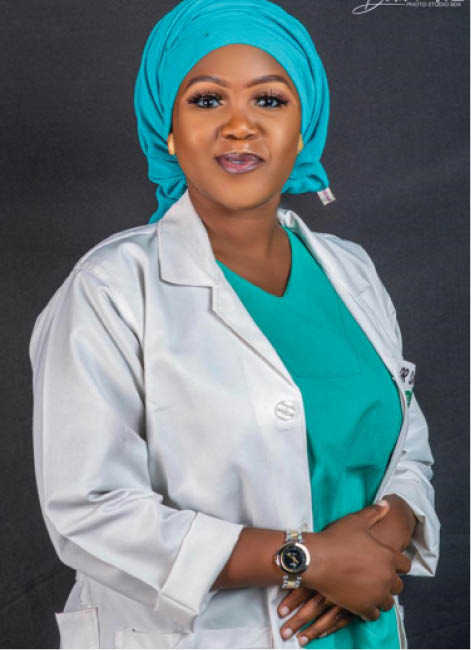Dr Safiya Tanko works at the Accident and Emergency Department of the Federal Teaching Hospital (FTH) Gombe in Gombe State. The first among four siblings from Niger state was born in Kaduna State but raised in Jos, Plateau State. The MBBS graduate from the University of Jos shared her experience in this interview.
Why did you choose medicine?
At the time I made the decision to study medicine, I was too young and naïve to decide what I really wanted to do with my life. As a teenager, what did I know? Thankfully, I had amazing parents who helped with the decision making process. They both put into consideration my academic history and we had a sit down with them both, then we came with the decision to study medicine.
Then, I have about three older distant female relatives that were medical doctors, who seemed admirable and that also influenced the decision.
Of course, doctors seemed smart in their white coats and almost angelic, being in a noble profession.
What challenges did you encounter during your study?
The challenges were numerous. The academic calendar was totally different from all other undergraduate courses. It was not the regular semester-to-semester nor session-to-session. We had one or two weeks break after each exam, sometimes no break at all. The workload was understandably much.
When you are dealing with human lives, the syllabus is the whole human body, and one is expected to know it all.
What endears you to the A&E Department?
The Accident and Emergency Department is the first point of call of most hospitals. When patients are not presenting at the General OutPatients Department (GOPD), they are presenting at the A&E. The kind of patients that present there are in different states. All needing the swiftest intervention and so, it is an interesting place.
The resuscitating and stabilizing of a patient goes a long way in determining the outcome of a patient’s condition. Nothing gives more joy, than seeing and knowing a patient comes in a life threatening situation and you are responsible for doing something swiftly to keep such a patient alive and or prevent his or her situation from getting worse. It is interesting.
What qualities should a doctor have?
A good doctor should have empathy, not display sympathy. He or she should listen to the patient, and make sure the patient and the relatives understand the situation. They should be carried along every step of the way, and the patient should be part of the decision making process of the care being offered.
He or she should be confident and not arrogant. There is a difference between the two.
The doctor is expected to be good at what he or she does, as well as have the requisite knowledge. He or she should also be respectful of the patient and his or her relatives.
What is your advice to youths, especially women on choosing this career?
My advice to all youth in general is, find what you are good at, and then put all it takes. It is important to know where one’s passion lies, as the passion is what will keep one going. In a field like Medicine, there are too many challenges that, if passion for a job is not there, it will be easy for one to chicken out.
Hard work is the bane of it. Any worthy thing requires hard work no doubt. It is not enough to be intelligent or have passion.
To the ladies in particular, the world has changed a lot; everyone is being measured now according to what one has to offer. Whether one is a female or male, one still needs to put in the work.

 Join Daily Trust WhatsApp Community For Quick Access To News and Happenings Around You.
Join Daily Trust WhatsApp Community For Quick Access To News and Happenings Around You.


